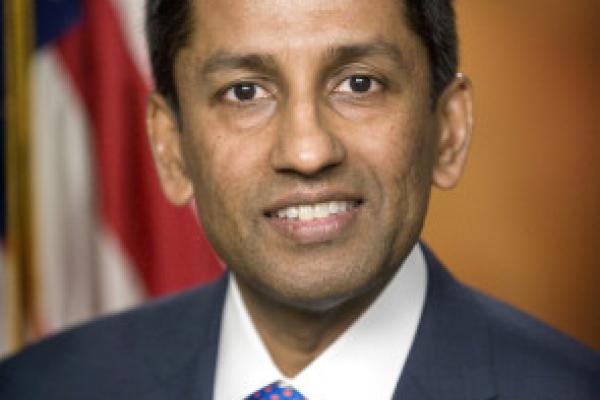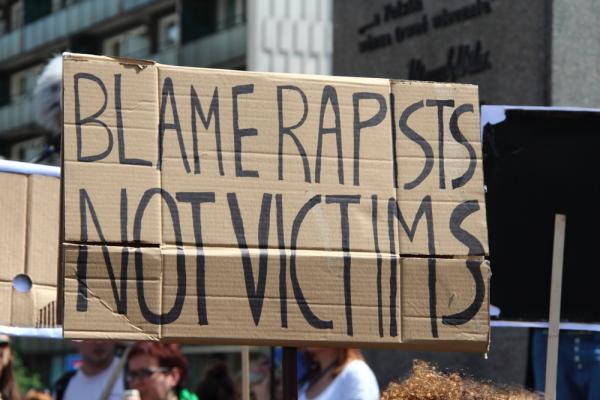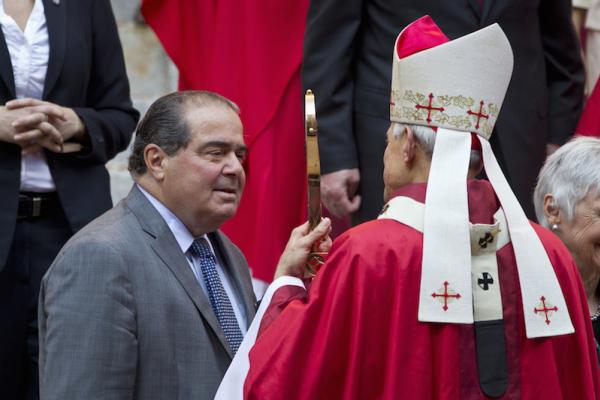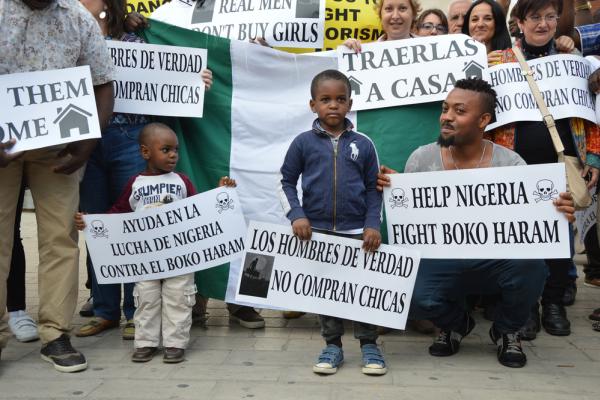Hindus around the world are wondering whether Sri Srinivasan — the name atop many a list of potential U.S. Supreme Court nominees — will be the first Hindu to serve on the high court. The India-born Srinivasan put his hand on the Hindu holy book, the Bhagavad Gita, held by his mother, when he was sworn in to the U.S. Court of Appeals for the District of Columbia Circuit in 2013. The Senate had confirmed him to the court — often a launching pad to the Supreme Court — by a 97-0 vote.
"That's messed up, I'm sorry. But it doesn't surprise me, because women tend to lie about it."
That was one friend’s reaction when I told him that Title IX investigators at my university had determined that the person I charged with rape was “not responsible.” I still read my friend’s sentence over and over. It haunts me. It hurts me. And it's not true.
Supreme Court Justice Antonin Scalia’s funeral will be held Feb. 20 at the Basilica of the National Shrine of the Immaculate Conception, the largest Roman Catholic church in North America, according to media reports. The late justice will lie in repose at the Supreme Court on Feb. 19, following in a tradition last observed after the death of Chief Justice William Rehnquist in 2005.
Sisters from the Dominican Sisters of the Sick-Poor (also now Dominican Sisters of Hope) sent representatives to marches. They saw systemic injustice firsthand in their ministries as they provided nursing services to residents of Harlem, the South Bronx, and other communities that struggled to afford healthcare.
Years after participating in equal rights and peace marches, Sister Bette Ann Jaster joined LifeWay Network, one of two organizations in the New York Metro area that provides safe housing and education for women survivors of human trafficking, as a representative for Sisters and Catholics in general. Her involvement on the committee has since declined, but Sister Bette Ann is as bothered by the issue as ever. “I keep wondering, ‘What more can we do?’” she said.
My wife and I are beginning to start the process of buying a house for the first time. For better or for worse, we have become regular viewers of HGTV’s line of television shows that target would-be home consumers just like us. There’s Fixer Upper, Flip or Flop, Property Brothers, Love It or List It, and…boy, could I go on. On the one hand these shows give us an interesting entree into what’s possible when it comes to buying and renovating a house. They may expand our vision so we don’t get stuck on things like existing wallpaper, old carpet, or hideous paint color. But, as I’ve come to understand the (very predictable) arc of these shows, I’m also struck by their danger. They’re basically “Keeping Up with the Joneses” on steroids.
A series of letters sent from St. John Paul II to a Polish-American academic shed new light on the pair’s close relationship and intimate discussions. Details of the correspondence between the former pope and Anna-Teresa Tymieniecka, a Polish-born philosopher, were published by the BBC on Feb. 15. The duo’s friendship has been well documented, although newly released letters held at the Polish National Library show the closeness of their relationship.
This week marks 25 years since the horrific U.S. bombing of the Amiriyah shelter in Iraq. At least 408 women and children died.
As we consider what has helped fuel the rage and hostility of extremists like ISIS, we can point to concrete events like the bombing of Amiriyah. It clearly does not justify the evil done by ISIS, but it does help us explain it.
It occurred to me: South Africa is no longer under legal apartheid, but apartheid still thrives here — through de facto economic segregation. There are no signs that say “whites only” as they did under apartheid, but there has also been no move by the black government to restore the people to the land that was taken from them.
One question haunted me: How does a white Christian South African live in this apartheid from day to day? 1) One must actively fight injustice, or 2) she must embrace a theology that has nothing to do with it.
I don’t know who posted it. But on Feb. 2, as I customarily do, I checked into Facebook to see what my friends were talking about. A post popped up about 86 children slaughtered in Dalori, Nigeria, by Boko Haram, the terrorist group that kidnapped upwards of 300 girls on April 14, 2014. The children, the post dated Jan. 31 noted, were burned alive.
I reflexively shuttered. How was is possible that is was Feb. 2 and I had heard NOTHING of children burned alive, not on any news network?
If we walk through Latin America and Caribe, and of course Africa and Europe, wherever black people are present, we see how much they are below the possibilities of ascension, trapped in the lowest classes of social scale. Some nations where there are black people in the population, even if in incipient number in some of them, are Peru, Ecuador, Venezuela, Colombia, Mexico, Haiti, Dominican Republic, Cuba, and Brazil. In all the nations cited, blacks are inserted in the lowest social strata. Therefore, we must ask an important question: Why in Latin America and Caribe black people are always in disadvantage?







